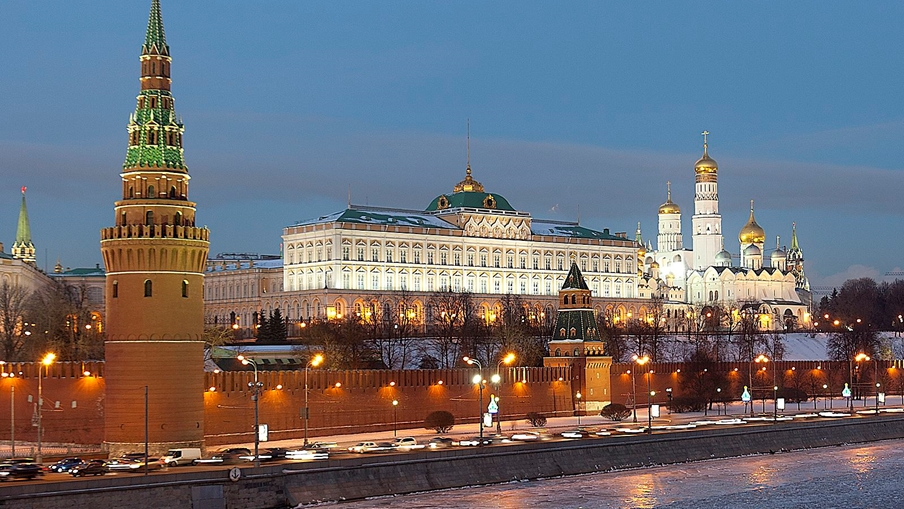This article has been updated with additional information from the U.S. government and research by Kharon.
The White House late Thursday issued a long-anticipated executive order authorizing sanctions on countries violating a U.S. ban on using chemical weapons.
The order doesn’t mention Russia by name. But the U.S. State and Treasury Departments issued directives and guidance documents during the weekend implementing the order against Moscow over the alleged use of the nerve agent Novichok in March 2018 on Sergei Skripal, a former Russian spy living in the U.K. Earlier sanctions on Russia relating to the attack were imposed in August 2018, and the Russian intelligence officers suspected of carrying out the attack were sanctioned in December 2018.
Skripal survived the attack, but a woman died months later after she came in contact with the nerve agent. Russia has consistently denied any role in the poisoning.
The order bars U.S. banks from making any loan or providing credit to the government of a country found violating the Chemical and Biological Weapons Control and Warfare Elimination Act of 1991 (CBW Act), other than loans or credits for buying food or other agricultural products. It also calls for the U.S. to oppose the extension of loans to the country by international financial institutions, such as the International Monetary Fund or the World Bank.
U.S. banks will be barred from participating in the primary market for non-ruble denominated bonds issued by the Russian government, and from lending non-ruble denominated funds to Moscow, according to a fact sheet issued by the State Department late Friday night. In addition, licenses for U.S. exports to Russia of dual-use chemical and biological items are presumptively denied, the fact sheet said.
“The CBW Act Directive imposes long-term costs on Russia for its brazen use of chemical weapons and its failure to meet the conditions described in the CBW Act, including the failure to provide reliable assurances that Russia would not engage in future chemical weapons attacks,” the Treasury said in frequently asked questions guidance issued mid-afternoon Saturday.
The measures are expected to go into effect Aug. 19, once published in the Federal Register, according to the State Department. The Treasury’s directive, however, says the measures take effect a week later, on Aug. 26. Once implemented, the measures are in effect for at least a year and can only be lifted if the White House determines and certifies that Russia has met several conditions described in the CBW Act, according to the State Department fact sheet.
Some of the more restrictive measures are partially waived, the State Department said.
The earlier round of sanctions in 2018 barred foreign military financing, denied U.S. government credit and prohibited U.S. exports of national security-sensitive goods and technology to Russia. U.S. officials had a package for the latest order prepared in February for President Donald Trump’s approval, Bloomberg reported.
The issuance of Thursday’s order came days after two House lawmakers urged Trump in a letter to impose sanctions on Russia over the attack on Skripal. The additional sanctions were legally required, the letter said, citing determinations by the U.S. State Department and the lack of certification that Russia was no longer using chemical weapons.
Reps. Eliot Engel (D-N.Y.) and Michael McCaul (R-Texas), the leaders of the House Foreign Affairs Committee who wrote the letter, said Friday they were encouraged by the executive order and called for sanctions to be implemented in coordination with allies to maximize their effect. “Existing law demanded this action,” they said in the statement.
Russian Deputy Foreign Minister Sergey Ryabkov said in a TV interview that Moscow wasn’t surprised by the move. “The Trump administration regularly introduces sanctions and other restrictive measures against Russia … I think this is part of U.S. domestic policy,” he said.
Maria Zakharova, the ministry’s spokeswoman, said Sunday in a TV interview that the sanctions show that the story about the Skripals was “invented” and “a provocation.” “At least, that part is trumped-up which was presented by the U.K., by London, by the Theresa May government as an official version. That is a story that has totally discredited itself,” Zakharova was quoted as saying.
The order on Thursday also came hours before the U.S. State Department announced that withdrawal from the Intermediate-Range Nuclear Forces (INF) Treaty would take effect, blaming violations by Moscow for the decision. Earlier in the week, the State Department released a timeline showing U.S. diplomacy related to the INF Treaty since 2013 and issued a “myth busters” statement combating Russian claims regarding the treaty.
“Russia is solely responsible for the treaty’s demise,” Secretary of State Mike Pompeo said Friday. “The U.S. will not remain party to a treaty that is deliberately violated by Russia.”
On Monday, Russian President Vladimir Putin said in a statement that the demise of the INF Treaty “created fundamental risks for everyone,” urging a return to “common sense” in international security policy. If the U.S. begins production of missiles that would have been banned by the treaty, as it’s indicated it would, Russia will be forced to develop similar missiles, Putin said.
